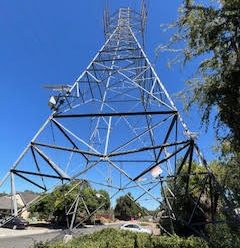Listing Agent Teams React to the Slowing of our Silicon Valley Real Estate Market
Ask almost anyone who has been following our local real estate market and they will tell you that the market is cooling. Since May, properties are taking a little longer to sell, sales prices are a little softer and more properties are seeing price reductions before they sell.
Here are 6 examples of changes in Real Estate listing team attitudes and behaviors that coincide with our slowing market. Note: regardless of market, these basic activities should be done by your real estate agent or agent team. If they aren’t, you might look for a more proactive realtor who is dedicated to your individual success.
- Some of the “named” or lead agents for these listing teams are beginning to hold open the team’s listings on broker tour as well as weekend open houses. Prior to the market slowing, the lead agent of the listing team would have an assistant or less experienced agent hold broker opens and public open houses as they were too busy to service the listing. Their focus was on keeping the pipeline of listings coming in. The more listings a team had the less likely the lead agent was involved in the day to day marketing and sale of the home. Why hire a listing agent team when the lead agent (the one you are really hiring) isn’t fully committed to selling your home?
- Some listing agent teams are beginning to be more proactive in their interactions with both the public and realtor community. They are initiating conversations with the intent to further promote their listings and find qualified buyers. When the market was hot, listing agent teams tended to sit back and let the realtor community come to them. Listing agent teams also are responding in a more timely fashion regarding buyer inquiries. In you were a buyer looking at property within the last few years (up until about May of this year), you probably can recount at least a few times when you had to contact a listing agent team multiple times to get a response. In today’s market, a slow response might cost the seller a qualified buyer as that buyer moves on to a different property.
- In addition to being more proactive, we are starting to see some listing agent teams become more diligent in understanding the condition of the property that they are marketing. In the days of the hot market, buyers asked questions and sadly when they got a response, the response may lack depth. In the rush to get the home to market, some of the information regarding the home’s condition weren’t fully understood by those who needed to know. Ever ask the agent team member at an open house about the condition of the property and get a response similar to “I’m not sure, but let’s take a look at the disclosure package?” It might be that listing agent leads (who typically do the negotiating for the seller) didn’t go over the disclosure information in detail with their team or the seller prior to putting the home on the market. It’s possibly a case of too many listings leading to a lack of time to learn about each individual property. In a hot market, it likely didn’t cost the deal because there were more buyers than homes available to buy. Today’s real estate market is quite different.
- Some listing agent teams are beginning to spend more time and money marketing the property (versus themselves). Almost half of the pages in a recent weekend edition of the Palo Alto Daily Post feature real estate property ads. Six months back, one or two years back, it seemed that those numbers were noticeably less. In addition, listing agent team self promotion ads are being replaced by property specific ads. Ads bragging about the successes of the listing agent team (ie. selling a home in 1 week for 30% over list) have been replaced by ads focusing on the benefits and features of the home. Why is that? Self promotion is down because listing agent teams aren’t selling homes in 1 week for 25% over list (unless they are grossly under pricing the home).
- Some listing agent teams are playing fewer pricing games. The artificial hype surrounding low list prices which led to “fake” high sales prices has worn thin with buyers. Remember late last year the news surrounding a home in Sunnyvale that sold for almost $800K above asking. It was grossly under priced in an effort to draw multiple offers. It drew multiple offers and sold for a huge number above list price but not out of line with where other homes had recently sold. It was gamesmanship that led to a lot of press and I’m sure future listings for the agent. Buyers are more educated about pricing and “comparables” are aren’t getting involved with grossly underpriced homes. Do you recall this past summer when some homes came on the market with what seemed to be a really low list price and then didn’t sell. Within a few weeks that same home would come back on the market for a higher price? I’m sure you were thinking “what idiot lists a home for sale and when it doesn’t sell, increases its list price?” I’m pretty sure the lead agent of the listing agent team convinced the seller that a low list price would lead to an auction type sale which would drive the sales price above market. When that promised high sales price never materialized, the home came back on the market with a list price more in line with where it originally should have been. Unfortunately when this strategy didn’t work, some homes either didn’t sell or sold for less than what they should have had there been no pricing games played. It makes one wonder if it was the hot seller’s market or the listing team’s low list price that produced the high list price to sale price number. A changing market is a tricky thing to manage.
- Listing agent teams are bringing more of their listings to the market versus trying to sell them “off-market” as pocket listings or exclusives, where many of them were sold (double ended) in house without hitting the market. How do I know this? Just visit the big listing team’s websites, they no longer have pages dedicated to their “exclusive” or “pocket” listings. Kind of makes you wonder why?
When the market was decidedly in favor of the seller, listing agent teams who had several listings didn’t need to work as hard or as smart as they should have in order to get a home sold. Missing what can be seen as a small step in the marketing process didn’t cost the sale. When the market is in transition and listing agent teams don’t work diligently or methodically to get a home sold for the highest price, the likely result is a lower sales price or no sale at all. Sometimes bad habits are tough to break.
If you are looking for a Realtor to sell your home who has sold homes for high prices in up, down or sideway’s markets and is someone who will work diligently in your best interests, please reach out to me. I’d love to have a conversation with you to see how we might work together to sell your home. Thank you.





